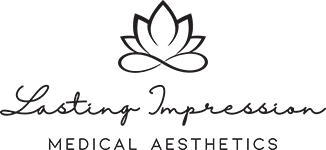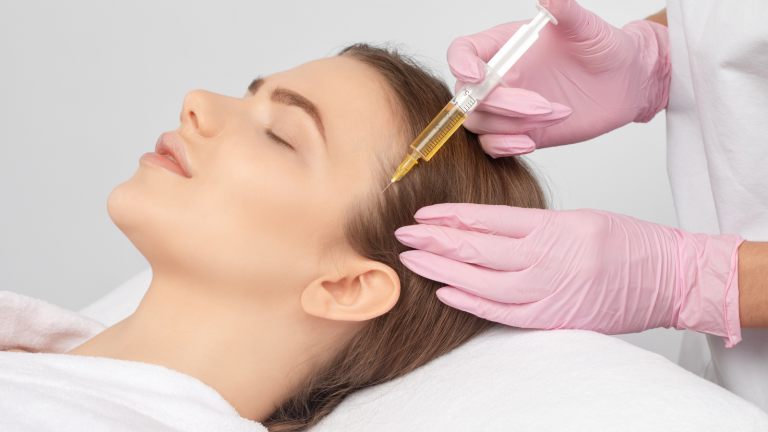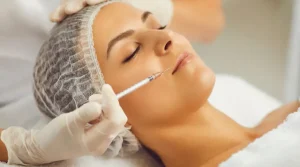Key Takeaways:
- Skin elasticity and structure depend on collagen. Loss of collagen leads to creases, fine lines, and drooping skin are indications of aging.
- A nutrient-rich diet, a tailored skincare routine, and non-invasive treatments can prevent early signs of collagen loss.
- Maintaining hydration, protecting skin from UV damage, and using collagen-boosting products are essential in anti-aging efforts.
What is Collagen, and Why is it Important for Your Skin?
The most prevalent protein in the body is collagen. comprising around 75% of the skin’s dry weight. It maintains the skin’s structure, elasticity, and hydration. It acts like scaffolding, keeping the skin firm and smooth. Unfortunately, as we age, collagen production declines. Things like pollution, smoking, sun exposure, and lifestyle habits accelerate this process, leading to visible signs of aging like wrinkles and sagging skin.
Maintaining adequate collagen levels is essential for youthful-looking skin. While the body naturally produces collagen, starting in your mid-20s, its production decreases at about 1% per year, contributing to skin aging.
How to Identify Early Indicators of Collagen Loss
Recognizing the early signs of collagen depletion can help you take action before it’s too late. Below are some telltale signs of collagen loss:
1. Sagging Skin: One of the earliest signs of collagen loss is sagging skin, particularly around the jawline, cheeks, and neck. As collagen declines, the skin loses its firm structure and droops.
2. Fine Lines and Wrinkles: These are the most apparent signs of collagen loss. Crow’s feet, forehead wrinkles, and smile lines are all areas where the skin tends to show the effects of diminished collagen.
3. Loss of Skin Elasticity: If your skin doesn’t bounce back as quickly when pinched, it’s a sign of reduced elasticity due to a lack of collagen.
4. Thinning Skin: Collagen helps to keep the skin plump. Thicker and more vulnerable to injury skin and bruising as it diminishes.
5. Dull and Dry Skin: Decreased collagen levels can affect skin hydration, leading to dryness and a lackluster complexion.
10 Ways to Prevent the Signs of Early Aging
While aging is inevitable, you can take steps to slow down collagen loss and reduce the appearance of premature aging. Below are ten practical strategies to help you maintain youthful skin for longer:
1. Adopt a Collagen-Boosting Diet
The formation of collagen is significantly influenced by your diet. Including meals high in amino acids, minerals, and vitamins can help promote natural collagen production. Include:
- Vitamin C-rich foods citrus fruits with bell peppers, for example are essential for collagen synthesis.
- Protein-rich foods like fish, chicken, eggs, and beans provide amino acids necessary for collagen formation.
- Antioxidant-rich foodssuch as leafy vegetables and berries, which combat free radicals that accelerate collagen breakdown.
- Bone broth is a source of collagen directly and can help replenish lost proteins.
2. Hydrate Your Skin
Water is necessary to keep skin supple and moisturized. Aim for at least eight glasses of water per day.Adding products with hyaluronic acid to your skincare regimen can boost hydration levels and support collagen retention.
3. Use Collagen-Boosting Skincare Products
Topical products containing ingredients like retinoids, peptides, and antioxidants can increase the formation of collagen and lessen the visibility of wrinkles and fine lines. Look for products explicitly targeting collagen synthesis, such as those containing Vitamin C and retinoids.
4. Protect Your Skin from UV Damage
Sunlight’s UV radiation is one of the main sources of premature aging. Consistent use of Using a broad-spectrum sunscreen with a minimum SPF of 30 helps shield your skin from harmful UV radiation, which can break down collagen and cause wrinkles.
5. Get Adequate Sleep
Your body goes into repair mode when you’re in deep sleep. regenerating cells and boosting collagen production. To allow your skin to Rejuvenate yourself by attempting to obtain seven to nine hours of quality sleep each night.
6. Quit Smoking
Smoking accelerates collagen breakdown and cuts off blood flow to the skin, preventing it from receiving oxygen and essential nutrients. Quitting smoking is one of the most impactful things you can do to preserve your skin’s collagen and overall health.
7. Reduce Sugar Intake
High sugar consumption can cause the process of glycation, in which sugar molecules cling to collagen fibers and transform them stiff and prone to damage. Reducing sugar intake can help prevent this process and support healthier skin.
8. Exercise Regularly
Physical activity increases circulation and delivers more Collagen formation is supported by the skin’s intake of oxygen and nutrients. Frequent exercise also aids in lowering stress levels, which might accelerate aging.
9. Consider Non-Invasive Treatments
If you’re already noticing the signs of collagen loss, noninvasive treatments can help. Procedures such as micro needling, laser therapy, and radiofrequency treatments stimulate the skin’s collagen production and improve its elasticity without the need for surgery.
10. Take Collagen Supplements
Collagen supplements in powders, capsules, or drinks can help replenish lost collagen. Look for hydrolyzed collagen peptides, which are more accessible for the body to absorb. Many studies show that collagen supplements can improve skin elasticity and reduce wrinkles.
Frequently Asked Questions (FAQ)
What causes collagen loss in the skin?
Loss of collagen is a normal aspect of aging. The body produces less collagen over time, starting in your mid-20s. environmental elements include pollution, smoking, sun exposure, and a bad diet can accelerate this process.
Can you restore lost collagen?
While you can’t fully restore lost collagen, you can stimulate its production with the proper diet, skincare products, and treatments. Collagen supplements and non-invasive treatments like microneedling can help rebuild some lost collagen.
How long does it take to see results from collagen-boosting treatments?
It depends on the method. Skincare products may take 2-3 months to show visible improvements. Non-invasive treatments like microneedling or radiofrequency may show results after several sessions, with optimal results appearing after 3-6 months.
Are collagen supplements safe to use?
Yes, it’s generally accepted that collagen supplements are safe for most people. However, it’s essential to consult a healthcare provider before starting any new supplement, especially if you have any underlying health conditions.
What is the best age to start using collagen supplements or treatments?
There’s no specific age to start, but many people begin using collagen-boosting skincare and supplements in their late 20s or early 30s when natural collagen production declines.
Conclusion
The basis of young, healthy skin is collagen. While aging is a natural process, There are many of things you may do to reduce your speed. collagen loss and prevent premature signs of aging. From adopting a nutrient-rich diet and using collagen-boosting skincare products to incorporating non-invasive treatments, maintaining your skin’s collagen levels is vital to looking and feeling your best.
By recognizing the early signs of collagen depletion—such as sagging skin, fine lines, and wrinkles—you can proactively address them with practical, long-term strategies. Through lifestyle adjustments and professional treatments, you can preserve your skin’s vitality and keep premature aging at bay.
Protect your skin today by investing in its future health. Collagen is a vital protein that can help you age gracefully, and it’s never too early to start taking care of it.
Unlock Your Radiance!
Say goodbye to fine lines and wrinkles with Bergen County Sculptra! Contact us now to book your appointment and take the first step towards a more youthful you.





